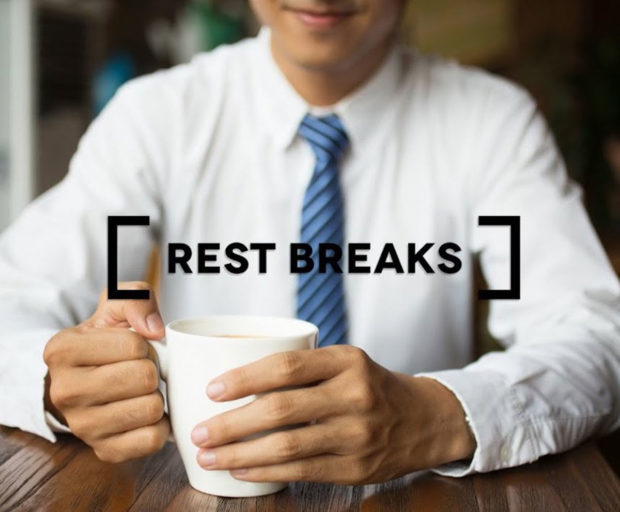Requiring workers to record meal breaks not taken is illegal

Alivia Stricklin worked as a security officer for First Alarm Security, a company in San Jose, California that provides security and patrol services to businesses and homeowners throughout the San Francisco Bay Area. As a security officer, Stricklin’s duties included patrolling premises they were assigned, typically working from eight to 14 hours a day, six days a week.
Stricklin and her fellow employees claimed that they were regularly required by their employer to remain on duty at all times during their shifts, including during meal and rest periods. Because of this requirement to remain on duty at all times, the employees claimed that the employer required them to handwrite 30-minute meal periods in their time records even though they never took these meal periods and they continued to remain in duty during the times when they were supposedly taking these meal periods.
Employees claimed the employer also had a policy that employees must wait at their post until the next shift relieved them of their duties. As a result, employees ended up working 15 to 30 minutes past their shift. They were not compensated for these extra time they worked.
Stricklin, together with other fellow security guards, sued their employer for back wages.
California law requires employers to provide a 30-minute uninterrupted meal period to employees for every 5 hours of work. Merely offering or allowing a meal break is not enough. The employer must affirmatively perform the following obligations:
- Relieve the employee of all duty for 30 minutes within the first 5 hours of work
- Give employees the freedom to leave the workplace during breaks
- Relinquish control over the employees’ activities during breaks
- Employees should not be impeded or discouraged from taking breaks
In light of these rules, the employer fails in its legal duty to provide meal breaks if:
- Employees were not relieved of ALL duties but required attend to work-related issues while on breaks.
- Employees are required to remain on the work premises where their breaks are interrupted.
- Meal breaks are not scheduled and employees are merely told to take a break when not busy, even though work is continuous and always busy.
If an employee was not provided a lunch break (meaning, the employee did not take an actual break, the employee took the break late, or the employee was interrupted during their break), the employee should not be deducted 30 minutes from their total hours at work. In fact, not only should there be no deduction, the employer should also pay the employee an additional one hour at the employee’s regular hourly rate for not providing a 30-minute meal period.
In the case against First Alarm Security, the parties decided to settle the case. The employer agreed to pay the employees $7,250,000 in damages.
Employers whose business necessities prevent them from giving lunch breaks (such as security guards or parking or gas station attendants) must learn to either structure the shift such that employees can take their lunch breaks, or pay their employees the California meal break premium if these breaks are not provided. The press of business is not an excuse to ignore an employee’s health and welfare.
The Law Offices of C. Joe Sayas, Jr. welcomes inquiries about this topic. All inquiries are confidential and at no-cost. You can contact the office at (818) 291-0088 or visit www.joesayaslaw.com. [C. Joe Sayas, Jr., Esq. is an experienced trial attorney who has successfully recovered wages and other monetary damages for thousands of employees and consumers. He was named Top Labor & Employment Attorney in California by the Daily Journal, consistently selected as Super Lawyer by the Los Angeles Magazine, and is a Presidential Awardee for Outstanding Filipino Overseas in 2018.]

